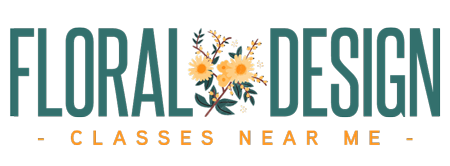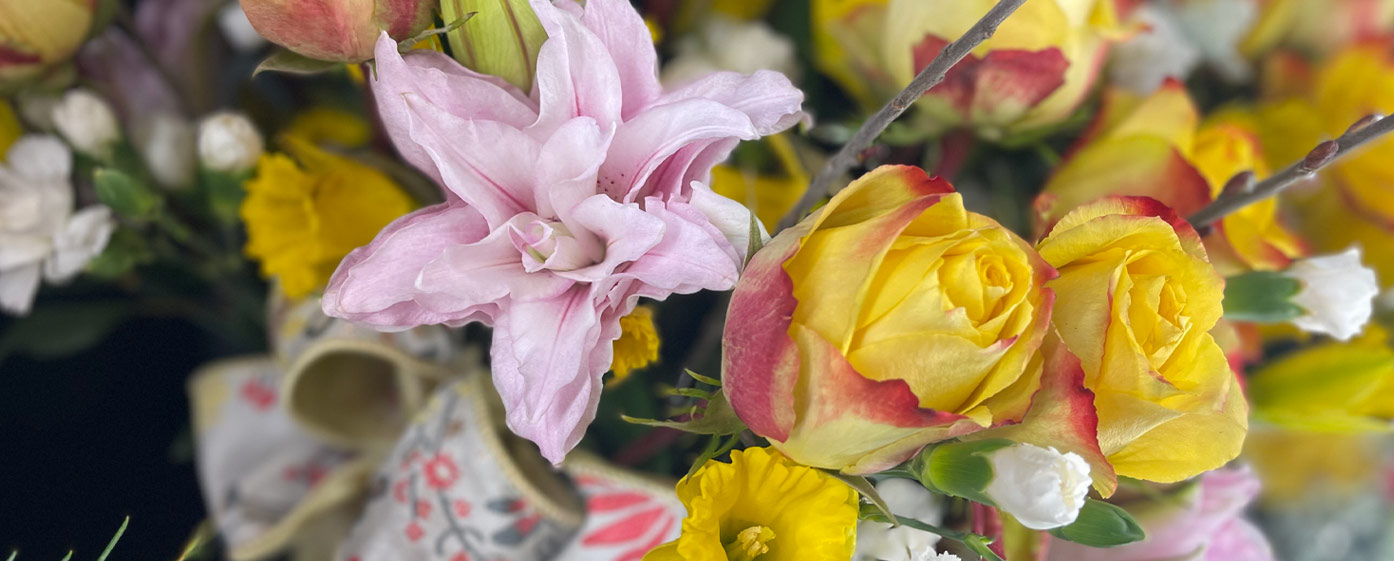10 Ways Floral Design Courses Will Help Your Career
The field of floral design can be overwhelming and even confusing for some. There is so much to learn and sort out regarding both the design and business best practices. A straightforward path to learning and improving your floral skills can make a difference. This is where floral design classes come into play. They are quick, cost-effective, and cover a variety of topics.
If you are still doubtful about investing your time and money in it, the nine benefits below may help you make up your mind.
1. Professional Design
Floral design courses focus on teaching the principles and fundaments. Design fundamentals such as color theory, color harmony, color blending, and different forms and textures all come into play when designing floral arrangements.
While you may already design great floral arrangements by yourself, creating arrangements to please certain clients requires a different more broad skill level. Floral Design courses improve and help create a wide range of colorful floral arrangement alternatives.
2. Higher Quality Arrangements
It is one thing to create aesthetically pleasant designs and another to create healthy, resilient arrangements but color can affect moods and emotions. You can’t risk misplacement when it comes to high-stake events like weddings and ceremonial engagements. It’s not rare for beginner floral pieces to lose their form, alignment, and right spacing once left untouched for some hours.
Floral design courses teach you the right technique and tools for different arrangements to create more stable and long-lasting designs.
3. Improved Research Skills
One thing that sets floral design courses apart from other self-learning approaches is their ability to teach industry jargon and tricks. They ensure that students are made familiar with common keywords, learning resources, and sources of creative inspiration.
By introducing a wide range of different principles that make up floral design, they enable students to conduct their own research later on. For example, you will be better able to find more refined search results when you search with specific terms such as “Chroma Palettes Reference”, “Asymmetrical Balance Bouquet,” and “Equilateral Floral Bouquet”.
Without the courses, you may find yourself looking up a “Triangle-shaped bouquet” when you want to find Equilateral Inspiration.
4. Sound Technical Foundation
The balance, alignment, form, and angle of your floral design boil down to your assembling technique. Without expert instructions, beginners often use whatever tool and hardware seem appropriate for the piece.
All three, floral tape, foam, and wire, can get you the same results. It’s the professional courses that help you differentiate between each and assess their suitability for different floral arrangements. For example, wires may be more suitable for one type of bouquet but an absolute no for another.
5. Quicker Workflow
Floral design courses focus on practical experience and instill confidence in each student. You avoid common mistakes and pitfalls when you gain comprehensive assistance from an expert during your first few designs.
After the course, you will be able to make design decisions, assess the suitability of tools, and create the right form more effortlessly. This results in a simplified and refined workflow that will differentiate you from other beginner floral designers.
6. Industry Insights
Most courses are led by expert floral designers who have experience in running a floral design business. They have knowledge related to the real numbers of the market, customer expectations, and supplier behavior.
For such reasons, students are made better prepared for actual market realities and trained in practical client consultation. However, not all courses will teach industry knowledge or come with expert tips and tricks.
Make sure to read up on the course’s outline to see what’s included and excluded before signing up.
7. Shop Management
Floral designers have to be excellent business managers as well. A floral design shop has to keep track of flower inventory, assess different costs, order the needed supplies, and communicate with different clients.
These are not naturally present in even the best floral designers. Some floral designer courses are specifically designed to teach shop management— what to order, how much to order, and how to handle client inquiries with grace. These allow you to run your new floral design service with better time and cost management.
8. Testing Your Options
Most floral design courses, especially those designed for beginners, focus on covering a wide range of styles. They will help you learn about different floral design styles, including modern, contemporary, and traditional.
The courses also include different types of floral arrangements such as bouquets, corsages, wreaths, and garlands. For these reasons, they allow you to test out different floral design niches and evaluate your capacities against the demands of each type.
You can better understand the steps involved in creating different styles and therefore make a more informed decision about the direction you want to take with your career.
9. Improved Business Skills
If you already have an established floral design business or a well-paying job, floral design classes can help you take your career to the next level.
Advanced Design classes include more intensive training and hands-on experience that will transform you from an average floral designer to an expert in the field. By teaching on a deeper level, they ensure that you can handle even the most complex design tasks and large-scale events.
So far, you may only know how to run a small-scale business, organize a limited event, and manage supplies for a small shop; advanced courses go beyond that. You can learn about advanced supply chain management, client relationship management, and accounting techniques.
Conclusion
Floral Design courses are valuable for both beginner and advanced floral designers. Whether you know how to run a full-fledged floral business or hardly understand the basic principles, such courses can provide an easy-to-follow learning path for everyone.
There are many specialized courses that focus on one or two aspects of floral design so individuals can learn and skip the parts as needed. However, it’s still important to do your due diligence and compare different courses before settling on one.
Different ones come with varying learning outcomes. Creating a list of your own weaknesses and learning needs can help you make a more informed decision.




